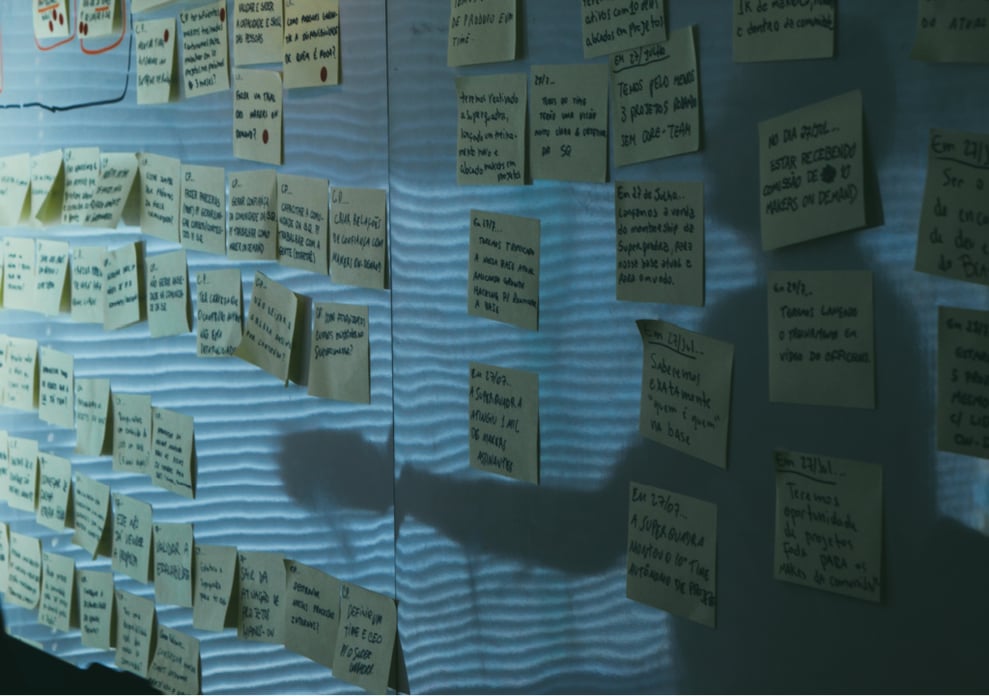I’m not lazy: overcoming a learning difficulty at work
TO COINCIDE WITH NATIONAL INCLUSION WEEK, READ ONE HOXBY’S EXPERIENCE WITH LEARNING DISABILITY AND EMPLOYMENT BARRIERS.
For those of us with Asperger’s, Autism Spectrum Disorder, Dyslexia, Dyspraxia, ADHD or another disability or learning difficulty, the workplace presents many challenges. Harsh fluorescent lighting, the intrusion of an office radio or the constant interruption of well-meaning colleagues can create a hostile or distressing environment.
But, of course, the problems don’t simply arise when you start work.
The effects never end with a learning difficulty
For years, I struggled unwittingly with a ‘specific learning difficulty’. School reports unfailingly told of a bright kid who struggled with her learning environment: although I read several years ahead of my classmates and excelled at topics that piqued my interest, I always failed to complete exams. I was also very messy: smudged handwriting, misplaced books, papers flying out of my bag. Teachers back then weren’t taught to recognise the signs of a learning difficulty, so I was told off for not applying myself. This had a huge effect on my self-esteem.
While a mental health condition or learning disability isn’t the same as mental illness, one often triggers the other: feelings of inadequacy or not fitting in can create lifelong struggles with depression and anxiety. It’s estimated that 25% of people in the UK will have mental illness in any one year, but according to the Foundation for People with Learning Disabilities, the rate is higher for people with learning difficulties – at up to 40%.
This pattern continued at university. Some days I would plough through mountains of work and feel on top of the world, but other days were write-offs, leaving me in despair. The morning my dissertation was due, I couldn’t find my car keys, which was unfortunate: my dissertation was locked in the boot! Despite these challenges, I still completed a BA and an MA.

Offices create learning disability barriers
Always a night owl and used to working in short, quick bursts of creativity, each morning I would grip my cup of coffee and stare bleary-eyed at my emails, trying to wake up. Office chatter and sales calls sent me hopelessly off-piste. I asked my boss if I could work with headphones or remotely one day a month, but he thought it indicated a lack of interest in my job, even though he acknowledged that my output was some of the best they’d had. The problem wasn’t the quality of my work; it was my inability to fit into the office.
Getting a late ADHD diagnosis was a big aha! moment that explained so much, from why I always misplaced keys and travel documents to why, much to my partner’s confusion, I hated bright lights and loud noises. With this new-found knowledge came some regret about not having an earlier diagnosis, but medication and new self-awareness drastically improved my life. Mostly, new possibilities opened in front of me. Did I want to continue in work that inhibited my success, or was this an opportunity to redesign my professional life?
Hoxby makes learning disability work
This is a shame for staff and for business: given the right environment, According to Forbes, people with ADHD are known for their entrepreneurial, creative spirit and original approaches to problem-solving. Among others, Sir Richard Branson famously has ADHD. So did IKEA founder Ingvar Kamprad.
Hoxby’s vision is to create a happier, more fulfilled society by changing how people work and allowing them remote, flexible workstyles. I was already a freelancer, but Hoxby gave me something I lacked: a community and all the best parts of an office. Hoxby’s #workstyle is a godsend for those of us looking for flexibility, whether due to parenting, caring, disability or just temperament!
For me, the ability to choose my projects and hours, and to manage my working environment, has helped me onto a career track I’m happy about, and has allowed me to reclaim my Sunday evenings from a feeling of foreboding I’ve had since school. I now look forward to the week ahead.
Learn more about Hoxby and inclusion
Are your personal circumstances putting a barrier between you and your ideal way of working? Do** **you want to join an exceptional global community of remote working freelancers whose mission is to create a better society through a world of work without bias?
At Hoxby, we believe diversity and inclusion are at the heart of what we do. It’s what allows us to see things from multiple perspectives and allows us to deliver refreshing work for our clients. To embrace diversity, we’re removing all forms of conscious and unconscious bias, not only from our recruitment practices, but also from how we operate.
Everyone is welcome to apply and become part of the Hoxby community, no matter when or where they work. And all Hoxbies can apply for a project where they’ll be judged on their outputs, regardless of their workstyle.
Our quarterly recruitment window will be opening soon. Join us.
National Inclusion Week 2020 runs between 28 September-4 October 2020. It’s organised by Inclusive Employers and its aims is to promote inclusivity by sharing great ideas, practice and culture with all companies and organisations who want to make a positive change to the future of work.
